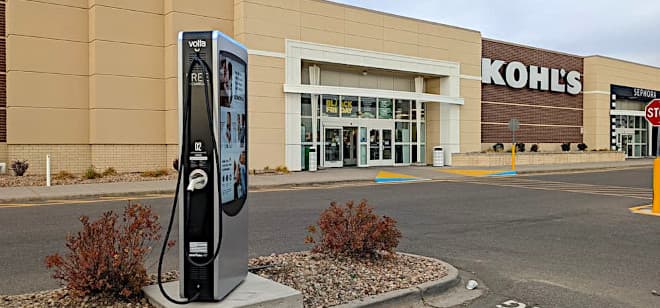|
Cugel the Clever posted:If I intentionally left $80k in cash in the middle of the sidewalk, I'd be laughed out of town if I tried to convince everyone that it was "stolen". Same should be true of personal vehicles being parked where they obviously shouldn't be. If we treated parked cars that block sidewalks and bicycle paths like we treat parked bicycles that block streets and parking spots I feel like the problem would quickly resolve itself albeit not necesarrily quietly.
|
|
|
|

|
| # ? Apr 28, 2024 18:18 |
|
Again, this is legal for most of these cars cuz they have a disabled pass. The cars must leave like a meter of space which is ironically usually not enough for a wheelchair (and usually they don't leave that). The city says their hands are tied until the law is changed. When my dad had heart surgery he applied for one, and he got rejected. He was promptly approached by two different lawyers offering to 'sort it out' for like $300. A similar cultural issue is the fact that people ride down the wrong way on a bike path, or ride on sidewalks as soon as there is the slightest inconvenience on the bike path. These three things together along with eBikes going 40kmh makes the city really unpleasant to walk in. The city doesn't give fines for that poo poo but they do if you ride without a helmet. Glad I left that dumpster fire.
|
|
|
|
kiminewt posted:A similar cultural issue is the fact that people ride down the wrong way on a bike path, or ride on sidewalks as soon as there is the slightest inconvenience on the bike path. And the latter is typically "a driver has parked their vehicle in the lane and the cyclist is afraid of being murdered by a driver if they ride in the road". While anyone being an rear end in a top hat on the sidewalk shouldn't be, the preference for taking the safer route makes sense and the best way to keep that intermingling down would be to ensure the roads are safe for all users by banning cars.
|
|
|
|
Cugel the Clever posted:I mean, the reason for the former is almost always "the bike network is not built to make basic navigation by bike possible." Around me, there's a lot of disconnected lanes and a weird lack of east-west lanes, leading to people just trying to make things work. Sure, I agree. But a common case is one where you have to wait at a light to make a left turn to get into the "correct" bike lane, or you could just make an immediate left into an opposite direction bike lane without waiting for the light (see illustration, blue being one of the normal ways and red being a bad way). I think this is a case where there isn't a simple solution and the blame can be placed on the rider. 
|
|
|
|
kiminewt posted:Sure, I agree. But a common case is one where you have to wait at a light to make a left turn to get into the "correct" bike lane, or you could just make an immediate left into an opposite direction bike lane without waiting for the light (see illustration, blue being one of the normal ways and red being a bad way). I think this is a case where there isn't a simple solution and the blame can be placed on the rider. rules are for cars
|
|
|
|
I wish my city had the infrastructure to have this problem
|
|
|
|
Cicero posted:I wish my city had the infrastructure to have this problem yeah if your problem is people not using bike infrastructure correctly, you're already light years ahead
|
|
|
|
Everyone gets a mini hovenring until they’ve caught up to the Dutch
|
|
|
|
A potentially useful article on the press, court and lobbying playbook used by the landlord and real estate lobby. Pity the Landlord by Charlie Dulik for the (excellent) Baffler quote:Lincoln Eccles is feeling the pressure. For the last few years, the Jamaican-born landlord has struggled to operate the fourteen-unit rent-stabilized building in the Crown Heights neighborhood of Brooklyn his family has owned since the 1950s. He is, by most metrics, a “small landlord,” though as with many small landlords, the diminutive is complicated: he “owes [his] break” to his uncle, reportedly the owner of more than one hundred multi-unit properties. For a single-building owner, Eccles’s tribulations have received an inordinate amount of press. Since 2020, he has appeared in the New York Times, the New York Daily News, the New York Post, CBS, NY1 Spectrum News, Yahoo, CNN, Curbed, Tablet, Crain’s, and more. He is also, perhaps unsurprisingly, incredibly active on Twitter. It continues with details from there, ending at SCOTUS. I encourage others to read in full.
|
|
|
|
https://passivehouseaccelerator.com/articles/testing-mass-timber-s-seismic-resilience Honestly very impressive how good it is. quote:After approximately 100 individual tests, including four simulated earthquakes that achieved shaking intensities up to 7.7 on the Richter scale and predicted to occur on average once every 2,500 years, the [10 story mass timber] building remains not just plumb, but with only cosmetic, non-structural damage.
|
|
|
|
So I realize this thread is relatively inactive, but I'm curious on a few things that people brought up a few months ago. I'll keep it general rather than quoting since the posts are over two months old. Firstly, I saw a lot of people talking about EV investment being wasteful. Some of the complaints can be generalized to: - we need to change out of the urban mode that allows cars at all, because the infrastructure is currently being used for SUVs and trucks with bad fuel efficiency and little consideration for pedestrian safety. - EVs off the current grid will be using fossil fuels to charge anyway - it's far from clean in a vacuum - The parking requirements for electric are even more expensive and onerous for potential new construction than they are for ICE vehicles, and this will lead to further issues for affordable vs green construction. I think I agree to some degree with most of these points, but I think this thread also has an odd tendency to be oddly myopic about the "urban" part of urban planning, where things outside of the immediate metro are if ores for the conversation and the dichotomy is purely urban/suburban What I mean is that even walkable neighborhoods and 15-minute cities still ultimately need shipping infrastructure and loading docks and the like, and it doesn't really feel like that gets much focus here even though that is a needed consideration for infrastructure. People have talked in this thread about issues of density growing without service growing - usually it seems like people are talking about personal transit or government services like utilities, but maybe that's my misread due to not having a background in planning. I think it is worth pointing out specifically though that even if people don't care to do shopping for durable goods in person (typical retail), there still needs to be a way for those items to be delivered (i.e. Amazon fulfillment centers and associated truck fleets), and perishable items like most food will probably never stop being relevant both for restaurants and grocery stores. That infrastructure currently requires roads, and it is difficult to imagine a last-mile solution that wouldn't - maybe because I lack imagination, so folks with more knowledge of situations in other countries should feel free to tell me how that looks and how scalable other options would or wouldn't be. Based on that, I somewhat feel that the complaints against road-based infrastructure are a bit too strident. It is certainly true that highways have caused harm, especially in my reference frame of the Boston metro. However, it seems basically indisputable that urban areas need interstate commerce to be viable, and I don't know that the distances involved in America would allow rail to be a full replacement even optimistically, certainly not for localities like Minneapolis that have no way to supplement land routes with water routes. If we want bike lanes and bus lanes, this sort of forces us into pretty wide roads even without street parking or other complications. It's definitely wasteful to have more than 5 lanes, but I'm not sure it really makes sense to draw a hard line against EVs when the R&D and highway charging stations for consumer use will ultimately be important for trucking that has no clear replacement even in a fantasy scenario. Similarly, we probably need the lithium to flow, so we should start working out what that looks like and make what improvements we can to the environmental impact and humanitarian conditions starting now. Hopefully we find other battery tech in the meantime or get better at recycling so that the consumer vehicles in the interim have less negative externalities - but even if we don't, we'd still want to work towards reducing diesel use. It also should be said that once electric vehicles are scaled up it will be much easier to pass restrictions on vehicle emissions - making a rule that only 20% of current cars will meet is just a guarantee that the implementation won't happen on the planned timescale, do we do need the harm-reduction of supporting EV production in the mean time to make it possible to ban ICE vehicles getting under 25 MPG or whatever The usual "I already agree with you" disclaimers apply (cars bad, housing good, density good, public transit good).
|
|
|
|
won't somebody please think of the dire shortage of places for cars to drive in the usa (USER WAS PUT ON PROBATION FOR THIS POST)
|
|
|
|
BougieBitch posted:If we want bike lanes and bus lanes, this sort of forces us into pretty wide roads What? Have you seen the average street in America? Most have way too many 12 foot lanes. Narrow the lanes, take away one or two from cars, and there's plenty of room for bus and bikes lanes without widening a single road. This is a street in the densest neighborhood in the densest city in the US and there's 4 loving lanes for cars. I think we'll be okay.
|
|
|
|
Yeah, this is a good point. Also, have the people talking about how bad the fashion industry is thought about the fact that people need to wear clothes? Have the people objecting to the war in Israel considered that people need to have jobs somewhere, and if they don't have jobs genociding, they'll be unemployed? And the investigators going after serial killers, have they considered the effects they're having in the true crime industry? Like, really makes you think. (USER WAS PUT ON PROBATION FOR THIS POST)
|
|
|
|
buddy, "how do we deliver big things to places on small streets" is a solved problem it has only even been considered a problem since the 1950s. before that, it wasn't a problem; people just knew how to do it. forgive us for being mad at having to read the carbrain's lament AGAIN please do not follow by trying to ablism-scold people who want to deemphasize cars. (USER WAS PUT ON PROBATION FOR THIS POST)
|
|
|
|
There is no substitute for reducing VMTs. EVs, while cleaner at point of emission, still have their own emission costs associated and further lock us into unsustainable land uses. They also require people to own and operate a new toy to fully participate in society. Charging infrastructure isn't going to be distributed equally and this also means urban areas need more parking spaces to devote to charging. There's also the entire issue of spending public money for the benefit of private individuals.
|
|
|
|
I prefer my food supply free of micro plastics Micro plastics are mostly tire particles The most poisonous kind of micro plastic is from tire particles EVs shed tire particles
|
|
|
|
EVs being heavier than comparably sized vehicles is a large safety issue along with shedding much more from their tires.
|
|
|
|
Sure, they're heavier, but have you considered that they're also more powerful?
|
|
|
|
Minenfeld! posted:EVs being heavier than comparably sized vehicles is a large safety issue along with shedding much more from their tires. Depends what your goals are. If you want to reduce rubber waste, yeah go for internal combustion. If you want to reduce carbon emissions, go for EV. Nothing is perfectly sustainable in every way.
|
|
|
|
Jaxyon posted:Depends what your goals are. 
|
|
|
|
Sure, but there's a carbon footprint for building those, and running them. Obviously public transit is preferable, but there's always going to be personal vehicles
|
|
|
|
The issue isn’t really that electric cars are impossibly heavy, it’s that Americans only want giant vehicles. At 3,500 lbs the Chevy Bolt is significantly lighter than the average American car weight of 4,100 lbs. But it and its 2,300 lb gas-engine equivalent the Chevy Spark are being discontinued, because people prefer to spend big money on giant trucks. Electric cars will become popular as the price declines. Every other consideration will be sidelined.
|
|
|
|
Jaxyon posted:Depends what your goals are. If your goal is to reduce carbon emissions, you want to reduce VMTs above all else.
|
|
|
|
I literally don't have a license lol, I don't think personally-owned vehicles are something we should be building around, but I work on issues of food insecurity and the current urban landscape is hugely lacking in affordable grocery options. If you assume that the model you want to follow is mixed-use where the first level is grocery, you need to account for the fact that trucks are going to need to get in there, and the denser you build, the higher the volume of resources needed on a daily/weekly/monthly basis to sustain the population. Yeah, we need fewer cars overall, ideally WAY fewer but rather than sniping about how poo poo Teslas are (real poo poo, we all know this) can someone point me to a viable model for that scale of transport that wouldn't involve trucking as a fairly major component? You can definitely reduce the width of roads in totally residential areas and build towards people walking to a grocery, but you still definitely need to be able to support the major arterial roads. Even in absolute fantasy land where urban environments are perfectly optimized, they don't produce their own food - you still will have a lot of vehicles for the segment of the population that do all of that. The brodozer is a meme, but there are people that need to haul poo poo. It would be preferable if you had to demonstrate that it was actually the case rather than just being culturally indicated, but Ford trucks won't go away because for all the idiotic marketing you do actually need that much space in your vehicle if your job is construction or whatever. I don't have a good idea of how many fewer cars would be reasonable for America if it reached a a better equilibrium, probably at least a 50% reduction if not more, but the current patterns of land use aren't there and we are far enough away that an EV rebate is mostly just going to change which type of car people buy rather than making people buy when they wouldn't - a new car is already such a luxury item. The conversations in this thread are so centered on 5 or 6 states that it comes across like people don't know the rest exist. Even within the Dems, a bunch of senators represent states with no metro over a million (Montana, New Mexico, West Virginia, Vermont, Maine). There is no universe where Vermont depopulates or densifies to a degree that makes cars irrelevant. We need policies that reduce the harm done by people living in the housing that exists right now even as we work towards building better things BougieBitch fucked around with this message at 00:14 on Nov 9, 2023 |
|
|
|
I'm sorry, are you arguing that urban areas can't have food without trucks or...?
|
|
|
|
Minenfeld! posted:If your goal is to reduce carbon emissions, you want to reduce VMTs above all else. Sure, but if you're going to have individual vehicles they probably should be electric, and you'll likely still have them no matter what.
|
|
|
|
vacuum tube delivery network or?
|
|
|
|
|
Jaxyon posted:Sure, but if you're going to have individual vehicles they probably should be electric, and you'll likely still have them no matter what. Yeah, sure. But we should spend absolutely 0 (zero) dollars on infrastructure for EVs.
|
|
|
|
Wait, why can't Vermont towns densify? Densification doesn't just stop working below 1 million regional residents or something. You just need good public transit locally and good regional public transit to connect the towns.
|
|
|
|
|
They can. That's how New England towns developed historically.
|
|
|
|
Minenfeld! posted:I'm sorry, are you arguing that urban areas can't have food without trucks or...? No, I think he is saying that urban areas can't have food without privately owned muscle cars somehow. (USER WAS PUT ON PROBATION FOR THIS POST)
|
|
|
|
Like you're going to still have people who need cars, sure. People actually working in the rural areas doing base material extraction (farming, mining, etc) will need cars in many cases. But in terms of total population size that's really not very many people in the modern world. Having small towns of a few thousand people built up more densely with them connected to each other via frequent bus or rail service will get you walkable towns everywhere and little need for cars by the average joe.
|
|
|
|
Minenfeld! posted:Yeah, sure. But we should spend absolutely 0 (zero) dollars on infrastructure for EVs. its really humorous that Tesla is OK with a charger in front of kohls department store as being the only option to charge their vehicles for something like 10 years and counting; 
|
|
|
|
Nitrousoxide posted:Wait, why can't Vermont towns densify? Densification doesn't just stop working below 1 million regional residents or something. You just need good public transit locally and good regional public transit to connect the towns. why can't we build new towns?
|
|
|
|
|
VictualSquid posted:No, I think he is saying that urban areas can't have food without privately owned muscle cars somehow. Without twelve-lane stroads, everyone would starve to death.
|
|
|
|
I think that the argument is that the total abolition of road vehicles in all contexts isn't a practical way to improve the overall car situation. This is confusing because I don't think anybody was calling for the total abolition of road vehicles in all contexts.
|
|
|
|
I've designed rural bus routes before. It's a thing we can do. Like 80-something % of the US lives in designated urban areas. I think we'd be ok here.
|
|
|
Minenfeld! posted:I've designed rural bus routes before. It's a thing we can do. Like 80-something % of the US lives in designated urban areas. I think we'd be ok here. The trick (and something we don't usually do for rural routes) is that you actually need to have frequent service. You can't be super concerned about getting buses full of people each time. You need to be willing to run mostly empty buses to give people the freedom to actually travel around or go to work in off hours.
|
|
|
|
|

|
| # ? Apr 28, 2024 18:18 |
|
Bongo Bill posted:I think that the argument is that the total abolition of road vehicles in all contexts isn't a practical way to improve the overall car situation. This is confusing because I don't think anybody was calling for the total abolition of road vehicles in all contexts. The pro-car argument requires that you pretend that privately owned SUVs are exactly the same as commercially owned delivery vans and tractors.
|
|
|

























